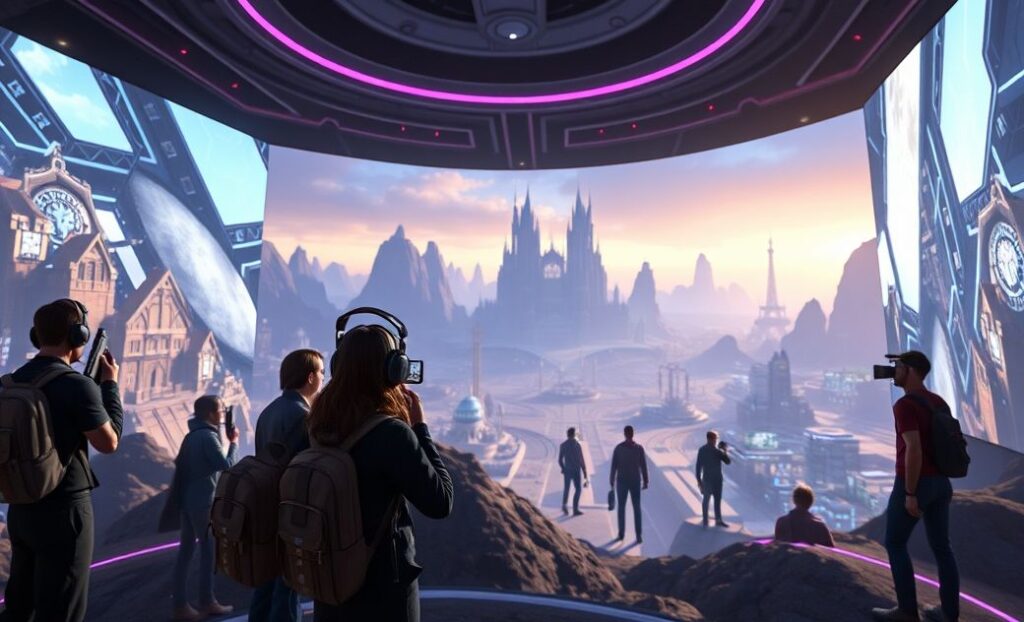The concept of the metaverse has gained tremendous attention lately, presenting itself as the next big leap in technology and gaming. This digital universe where virtual worlds converge is not only revolutionizing how we play games but also how we interact, socialize, and even conduct business. But what exactly is the metaverse, and why is it considered the next frontier in gaming? Let’s explore the depths of this digital reality and its impact on the gaming industry.
Understanding the Metaverse
At its core, the metaverse is a virtual space where users, represented by avatars, can explore online realms and perform various activities as they would in the real world. It’s an amalgamation of augmented reality (AR), virtual reality (VR), and the internet that creates a persistent and interconnected universe.
The Evolution of Gaming Experience
Games have evolved tremendously over the past few decades from simple pixelated adventures to immersive, photorealistic experiences. The metaverse takes this a step further by offering an interactive environment where players are not confined to a single game or narrative. Instead, they can explore multiple worlds and engage in various activities, blurring the lines between gaming, social networking, and online economies.
The Metaverse’s Impact on Game Development
The emergence of the metaverse is prompting developers to rethink traditional game design. No longer are players restricted to linear gameplay; rather, they are given the freedom to explore interconnected digital worlds. This shift necessitates new models of game development focused on open-ended storylines and user-generated content.
Integration of Advanced Technologies
The development of metaverse platforms is heavily reliant on cutting-edge technologies such as blockchain, artificial intelligence, and VR/AR. Blockchain technology, for instance, enables the creation of unique digital assets and economics within the metaverse, allowing players to own and trade virtual goods. Simultaneously, AI enhances the metaverse’s realism, providing sophisticated non-playable characters and dynamic environments.
Social Interaction in the Metaverse
One of the most profound impacts of the metaverse is on social interaction. Unlike traditional games where interaction is mostly gameplay-focused, the metaverse offers a space for social connectivity, fostering a sense of community among players from around the world.
Virtual Events and Meetings
The COVID-19 pandemic accelerated the demand for virtual meetings and events, paving the way for metaverse adoption. In these digital arenas, users can attend concerts, participate in conferences, or simply gather with friends, offering experiences that are often more immersive than traditional online interactions.
Challenges and Considerations
Despite its promising potential, the metaverse faces several challenges that need addressing. Issues such as data privacy, the digital divide, and the psychological impact of prolonged immersion in virtual worlds require careful consideration.
Ensuring Privacy and Security
As users spend more time in the metaverse, the risk of data breaches and privacy invasion increases. Developers and policymakers must work together to create secure infrastructures and regulatory frameworks to protect users in these digital realms.
The metaverse represents a transformative shift in gaming and digital interaction. As it continues to develop, it will undoubtedly redefine how we perceive entertainment, community, and even reality itself. By embracing the metaverse, the gaming industry stands at the forefront of technological advancement, poised to lead us into a future filled with endless possibilities.
